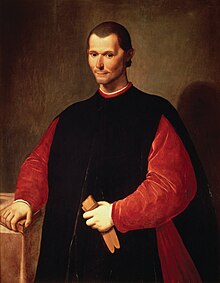
Consequentialists
In ethical philosophy, consequentialism is a class of normative, teleological ethical theories that holds that the consequences of one's conduct are the ultimate basis for judgment about the rightness or wrongness of that conduct. Thus, from a consequentialist standpoint, a morally right act (or omission from acting) is one that will produce a good outcome.
3 episodes
Episodes in this category also belong to the following categories:
Bertrand Russell
Melvyn Bragg and his guests discuss the influential 20th-century British thinker Bertrand Russell, widely regarded as one of the founders of Analytical philosophy.
6 December 2012
Featuring: A. C. Grayling, Mike Beaney, Hilary Greaves
PhilosophyNobel laureates in LiteratureBritish philosophers of languageGeorgistsEnglish political writersFree love advocatesSet theoristsAristotelian philosophersWriters about religion and scienceJerusalem Prize recipientsFellows of Trinity College, CambridgeEnglish logiciansPhilosophers of mathematicsBritish historians of philosophyEmpiricistsOntologistsMetaphysics writersBritish political philosophersFellows of the Royal SocietyMetaphilosophersTheorists on Western civilizationBritish ethicistsPhilosophers of literatureBritish free speech activists20th-century English philosophersAnalytic philosophersEnglish humanistsRhetoric theoristsAtheist philosophersEnglish political philosophersEnglish anti-fascistsEnglish people of Scottish descentPhilosophers of historyEnglish agnostics20th-century atheistsConsequentialistsEnglish socialistsPhilosophers of social scienceBritish philosophers of religionPresidents of the Aristotelian SocietyLogiciansPhilosophers of lawPhilosophers of sexuality19th-century English mathematiciansCritics of work and the work ethicSecular humanistsPhilosophers of technologyPhilosophers of economicsWriters about globalizationBritish philosophers of educationBritish philosophers of culture, English pacifistsBritish philosophers of logicCritics of the Catholic ChurchPeople from MonmouthshireAlumni of Trinity College, CambridgeLinguistic turnPhilosophers of loveEuropean democratic socialistsBritish consciousness researchers and theoristsWriters about activism and social changeEnglish Nobel laureatesMembers of the Order of MeritEnglish prisoners and detaineesUtilitariansIntellectual historians, University of Chicago facultyEnglish scepticsBritish critics of ChristianityEnglish people of Welsh descentUniversal basic income writersBritish philosophers of mind19th-century English philosophersBritish critics of religionsAcademics of the London School of Economics, British philosophers of science19th-century atheistsUniversity of California, Los Angeles facultyAnti-nationalists20th-century English mathematiciansEnglish essayistsFreethought writersBritish atheism activistsWriters about communism19th-century English essayistsEnglish male non-fiction writersMachiavelli and the Italian City States
Melvyn Bragg discusses the political philosopher Niccolo Machiavelli. Inspired by the model of Cesare Borgia, he wrote a notorious manual of power still read today.
9 December 2004
Featuring: Quentin Skinner, Evelyn Welch, Lisa Jardine
Mill
Melvyn Bragg discusses the 19th century political philosopher John Stuart Mill and his treatise On Liberty which is one of the sacred texts of liberalism.
18 May 2006
Featuring: A. C. Grayling, Janet Radcliffe Richards, Alan Ryan
PhilosophyBritish political philosophersHonorary Fellows of the Royal Society of EdinburghEnglish libertariansBritish philosophers of languageConsequentialistsInfectious disease deaths in FranceEnglish socialistsUtilitariansEnglish suffragistsTheorists on Western civilizationBritish ethicistsBritish socialistsEnglish political writersLogiciansEnglish feminist writers, English feministsBritish free speech activistsPhilosophers of sexualityPhilosophy writersBritish classical liberal economistsPhilosophers of economicsBritish social liberals19th-century English non-fiction writersFellows of the American Academy of Arts and SciencesPhilosophers of cultureRectors of the University of St AndrewsPhilosophers of psychologyBritish philosophers of mindEnglish logicians19th-century English philosophersBritish philosophers of logicEnglish autobiographersAnglo-ScotsUK MPs 1865–1868Empiricists19th-century English writersVoting theoristsEuropean democratic socialistsEnglish essayistsEnglish political philosophers19th-century English essayistsEnglish male non-fiction writersEnglish non-fiction writersPhilosophers of scienceEnglish people of Scottish descentPhilosophers of historyEnglish republicansScholars of feminist philosophyEnglish agnosticsBritish male essayists


